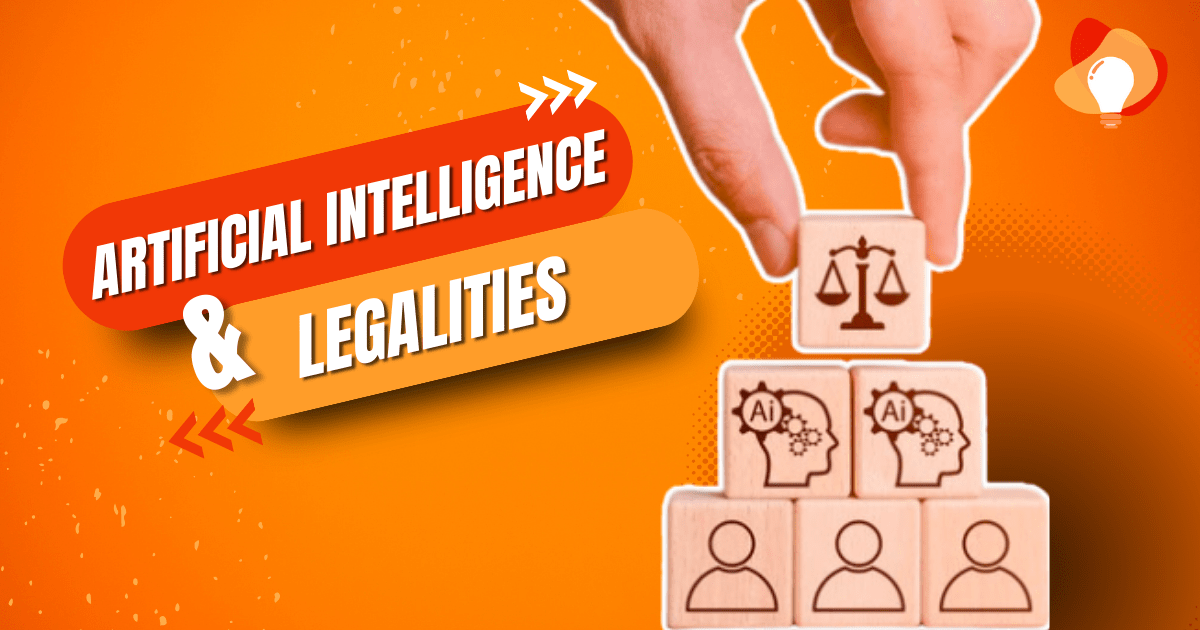In an era defined by technological progress, Artificial Intelligence (AI) stands out as a revolutionary force, infiltrating diverse aspects of daily life. As AI integrates seamlessly into Indian society, the legal ramifications of its presence become increasingly noteworthy. From serving as a tool for daily convenience to potentially functioning as a political weapon, the legal dimensions of AI in India demand meticulous scrutiny.
AI in Daily Use:
The incorporation of AI into everyday life has streamlined processes, affecting individuals and businesses alike. Personal assistants, smart home devices, and recommendation algorithms exemplify AI applications in daily use. While these innovations boost efficiency and convenience, they also give rise to privacy concerns. The legal framework overseeing the utilization of personal data in India, primarily the Personal Data Protection Bill, seeks to address these concerns by establishing rules for the collection and processing of personal information.
Political Tool or Destructive Weapon?
AI’s dual role as both a political tool and a potential destructive force introduces complexity to the legal framework. On one hand, AI facilitates data-driven political campaigns, enabling politicians to understand and target specific voter demographics. However, the misuse of AI in influencing political opinions, as observed in the dissemination of misinformation and manipulation of social media, raises ethical and legal concerns. Indian electoral laws must adapt to confront these challenges, ensuring a fair and transparent political landscape.
Deepfake for Politics:
The ascent of deepfake technology amplifies the legal challenges associated with AI in politics. Deepfakes, or AI-generated content convincingly mimicking real individuals, pose a serious threat to the authenticity of political discourse. From manipulating speeches to creating misleading videos, deepfakes can sway public opinion and disrupt the democratic process. Indian laws need to evolve to combat the proliferation of deepfakes, establishing clear regulations and consequences for their creation and dissemination.
Indian Laws for AI:
India has acknowledged the necessity for a robust legal framework to govern AI applications. The National Strategy for Artificial Intelligence outlines the government’s vision for AI development, emphasizing ethical considerations and the responsible use of AI. The development of AI guidelines by the NITI Aayog further underscores India’s commitment to nurturing an AI ecosystem aligned with ethical standards. However, these initiatives must materialize into concrete legislation to address the myriad legal challenges posed by AI.
Cyber Laws for AI:
Given the interconnected nature of AI and cyberspace, existing cyber laws in India play a pivotal role in addressing AI-related issues. The Information Technology Act, 2000, forms the bedrock for regulating online activities, including those involving AI. As AI-driven cyber threats continue to evolve, amendments and enhancements to existing laws become imperative. Strengthening cybersecurity measures and ensuring prompt legal responses to AI-related cybercrimes will be crucial in safeguarding individuals, businesses, and national security.
As Artificial Intelligence becomes an all-encompassing force in Indian society, navigating its legal implications demands a comprehensive and adaptive approach. From safeguarding privacy in daily AI applications to addressing the nuanced challenges of AI in politics, the legal framework must evolve to keep pace with technological advancements. India’s commitment to ethical AI development, as reflected in its national strategy, needs to translate into concrete legislation. By formulating and enforcing laws that balance innovation with accountability, India can harness the potential of AI while mitigating its associated risks, confidently striding into a future where AI contributes positively to societal progress.


This Post Has 0 Comments